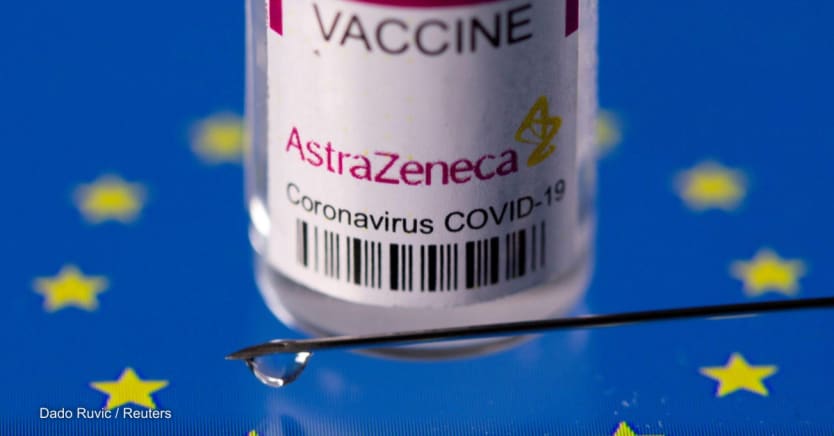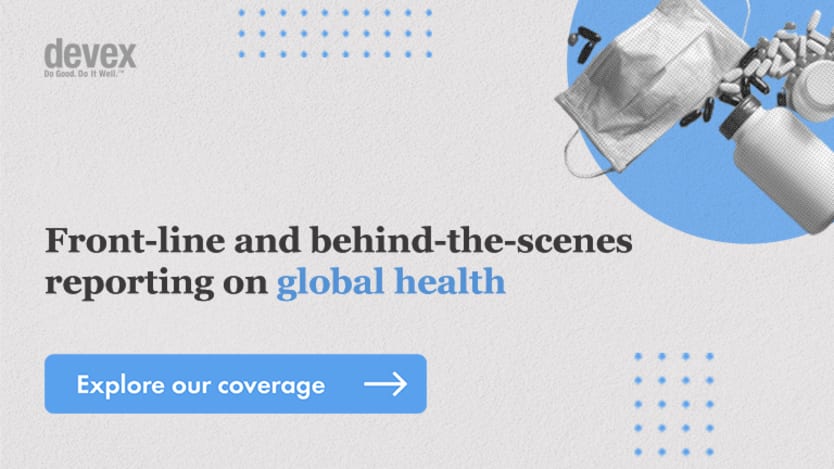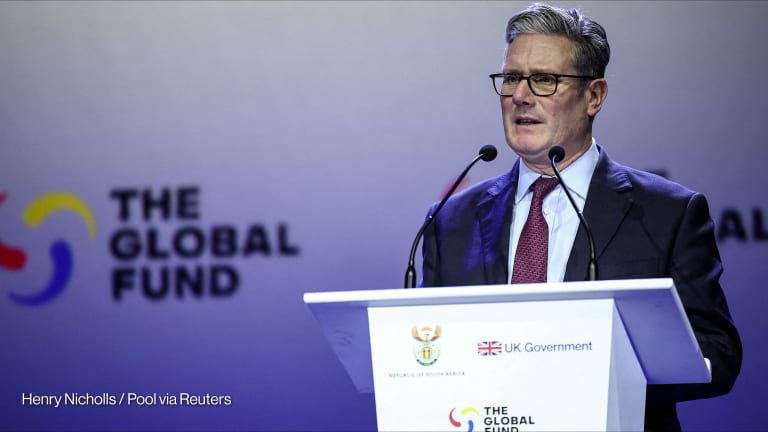
The European Union executive says it is confident its member countries will “do their utmost” to hit the goal of sharing 200 million coronavirus vaccine doses with lower-income nations by the year’s end, though so far only around 18 million have been delivered.
A European Commission spokesperson told Devex last week that the 18 million doses delivered by Sept. 1 included 6 million doses sent via the global procurement mechanism COVAX: 4.17 million donated by France, 1 million by Sweden, 756,480 by Spain, and 86,000 by Portugal.
Sign up for Devex CheckUp
The must-read weekly newsletter for exclusive global health news and insider insights.
The remainder accounted for 8.5 million doses delivered via the EU Civil Protection Mechanism; 650,000 EU-funded doses to the Western Balkans; and doses directly provided to recipients, the spokesperson added.
European Commission President Ursula von der Leyen announced in July that “Team Europe” — encompassing the EU institutions and the 27 member states — was “on track” to sharing 200 million doses with low- and middle-income countries by the end of 2021.
The quantity, type, and time frame for donating doses, however, is up to each member state, the spokesperson wrote in an email.
Asked whether the 200 million target for donations remained realistic given the slow progress, the spokesperson wrote: “EU leaders have committed to accelerate the sharing of vaccines as a way to help speed up global vaccination efforts and this is showing with the fact that donations are growing in numbers on a daily basis practically.”
“The Commission remains confident that [member states] will do their utmost to meet the 200 million target and we will continue to facilitate the process,” the spokesperson added.
Aside from donating doses, the EU and its member states have contributed close to €3 billion ($3.6 billion) to COVAX, and together with European development banks the commission is working to boost vaccine manufacturing capacity in Africa.
Deal to send COVID-19 vaccines from South Africa to Europe dismantled
An agreement to ship Johnson & Johnson COVID-19 vaccines partially produced in South Africa to Europe has been suspended, following large-scale criticism that vaccines produced on the African continent were being exported despite only less than 3% of the population being fully vaccinated.
The heads of the Multilateral Leaders Taskforce on COVID-19, composed of the International Monetary Fund, World Bank, World Health Organization, and World Trade Organization, recently called on the G-7 nations and other dose-sharing countries to “fulfill their pledges urgently, with enhanced pipeline visibility, product shelf life and support for ancillary supplies.” Only around 10% of nearly 900 million committed doses had been shipped as of Aug. 27, according to the task force.
Last Tuesday, Helen Clark and Ellen Johnson Sirleaf, former co-chairs of the Independent Panel for Pandemic Preparedness and Response, called for urgency in delivering millions of pledged doses.
In its report, the panel recommended high-income countries share at least 1 billion doses to the 92 LMICs that are part of COVAX’s advance market commitment by Sept. 1. Countries failed to meet the target, however, with only 99 million donated doses having been shipped via COVAX — of which only 89 million reached COVAX AMC countries.
“The Commission remains confident that [member states] will do their utmost to meet the 200 million target and we will continue to facilitate the process.”
— European Commission spokespersonThe EU on Friday also reached an agreement with AstraZeneca for the delivery of 200 million COVID-19 vaccine doses by March 2022, which the EU says is part of its advance purchase agreement with the company from August 2020. The agreement puts an end to a legal dispute that began in April, when the EU sued AstraZeneca for not meeting some terms of its agreement and over the timely delivery of doses.
A number of EU member states have been donating their AstraZeneca doses to LMICs directly or via COVAX. France decided in July to donate all new deliveries of AstraZeneca doses to COVAX. The commission spokesperson reiterated that whether or not doses are donated is up to each EU member state.
In a statement last Friday, Stella Kyriakides, EU commissioner for health and food safety, said that while 70% of the EU’s adult population has now been fully vaccinated against COVID-19, vaccination rates between EU countries differ significantly, and that “the continued availability of vaccines, including AstraZeneca's, remain crucial.”










